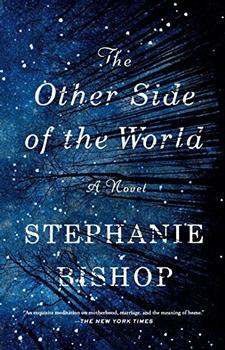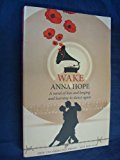Summary | Excerpt | Reading Guide | Reviews | Beyond the book | Read-Alikes | Genres & Themes | Author Bio

Mary-Rose MacColl's latest book, In Falling Snow, is a heart-rending story of love and loss. Iris Crane Hogan is an ailing eighty-two-year-old living in Australia in the 1970s when she receives an unexpected invitation from France. The message activates her failing memory, forcing her to revisit her experiences during WWI when she worked at Royaumont – an abbey (see 'Beyond the Book') converted to a hospital for wounded soldiers – as an administrator and nurse. While there, Iris formed deep attachments, suffered intense grief, and developed profound secrets that influenced every aspect of her post-war life. Much of the novel tells Iris's story in bits and pieces, covering her childhood in rural Australia, her years in France, her life as a mother and wife, and her current situation as an elderly widow. The other thread that runs through the plot is told from the point of view of Iris's granddaughter Grace, an obstetrician married to a fellow doctor, with whom she has three children. Grace is desperately trying to balance her family and career – and not always succeeding. Iris has not told Grace about her past, and consequently the invitation becomes a gateway for Grace to discover more about her grandmother and about herself, helping her to ultimately focus on the things that are most important in life.
Loss is a universal experience, and because of MacColl's remarkable ability to describe the emotions and actions of someone experiencing sorrow, In Falling Snow will have a deep resonance with many readers. I would be hard-pressed to come up with a novel that I found as moving, or that portrayed grieving as accurately as this one. MacColl has a real talent for relaying interactions between her characters during scenes of intense tragedy without allow the story to descend into melodrama. I wouldn't call it a tearjerker necessarily, but the author pens several exceptionally poignant scenes that will definitely touch readers' hearts.
She is also very skilled at bringing her characters to life. Iris is a brilliant creation who very realistically grows from a naïve twenty-year-old to a mature woman over the course of the war, and the author's descriptions of Iris's failing health and memory as she ages are spot-on. Grace's frustration and guilt at her inability to juggle all her responsibilities is also eminently convincing. These women come across as both strong and vulnerable, a balance that is difficult to achieve, and which highlights the author's skill at character development. The minor characters are also well fleshed out and believable.
The novel is based on a relatively obscure bit of WWI history: a group of Scottish women set up a field hospital in the abbey of Royaumont during WWI under the direction of the French Red Cross. In Falling Snow features several characters based on real-life people, in particular its Chief Medical Officer, the charismatic Frances Ivens (1870-1944). It's a very interesting premise, but the book's major shortcoming is that it fails to take full advantage of this very specific time and place. The author conveys no real sense of location; for example, she mentions that the winters are cold and the abbey dark, but never manages to help her readers feel that the characters are shivering away in an immense stone edifice; we never get a vivid picture of the abbey or a sense of what it was like to live in it. The action is also set in a specific era but again, the author doesn't transport her readers there; it barely seems like there's a war on, and when descriptions are included, it feels like we're reading about any war in any Western country at any point in the 20th century. When MacColl does get specific about the context, the information she includes is in chunks reminiscent of a summary from a history book rather than weaving that history into the story; it's out of place and clumsy. Similarly, the parts of the book set in 1970s Australia could have been set in any Western country at any point in the past 50 years; there was absolutely no sense of locale or time period conveyed.
While those seeking a good WWI historical fiction novel may find In Falling Snow a bit of a disappointment, readers looking for an emotional, character-driven story will likely find it one of the best books they've come across recently. MacColl's ability to realistically convey the experience of loss will undoubtedly win her many new fans.
![]() This review
first ran in the October 2, 2013
issue of BookBrowse Recommends.
This review
first ran in the October 2, 2013
issue of BookBrowse Recommends.

If you liked In Falling Snow, try these:

by Stephanie Bishop
Published 2017
In the tradition of The Hours and Revolutionary Road comes a novel set in the 1960s about marriage, motherhood, identity, nostalgia, and the fantasy of home.

by Anna Hope
Published 2016
Anna Hope's brilliant debut unfolds over the course of five days, as three women must deal with the aftershocks of World War I and its impact on the men in their lives.
Your guide toexceptional books
BookBrowse seeks out and recommends the best in contemporary fiction and nonfiction—books that not only engage and entertain but also deepen our understanding of ourselves and the world around us.